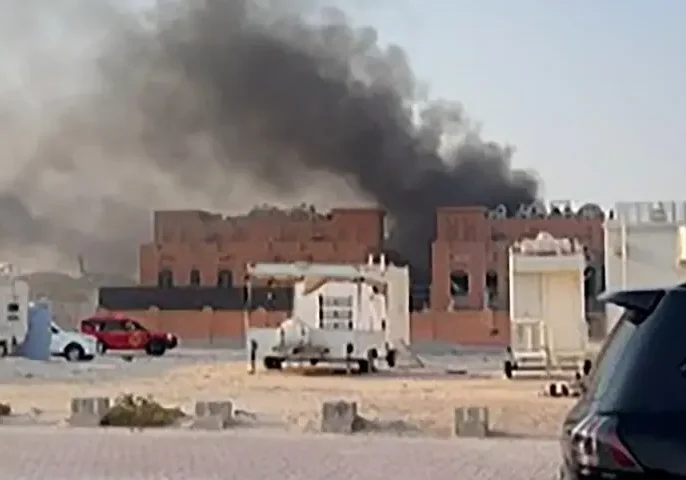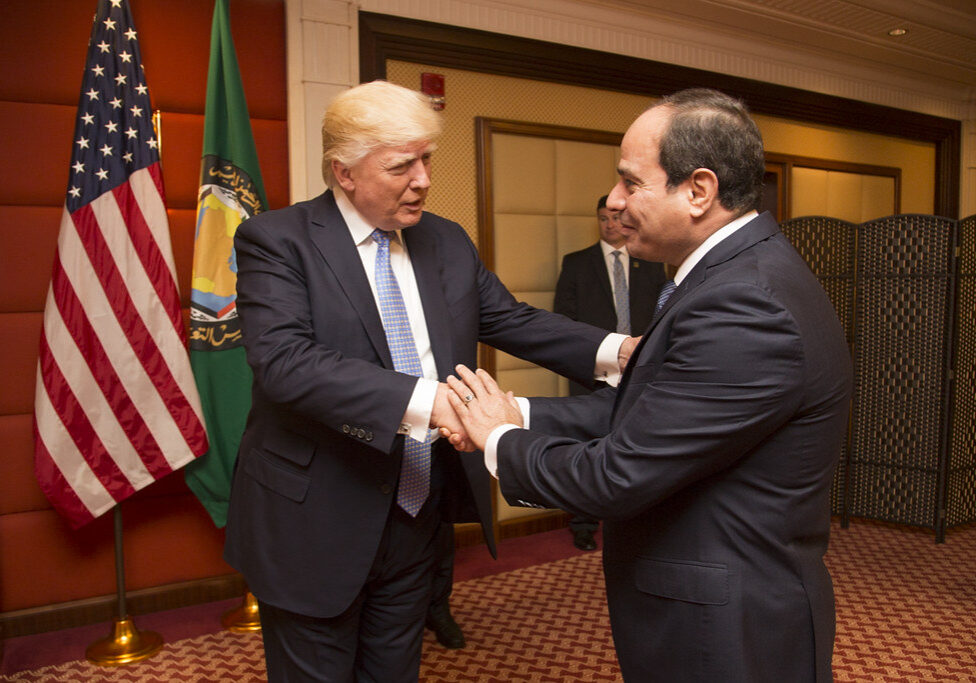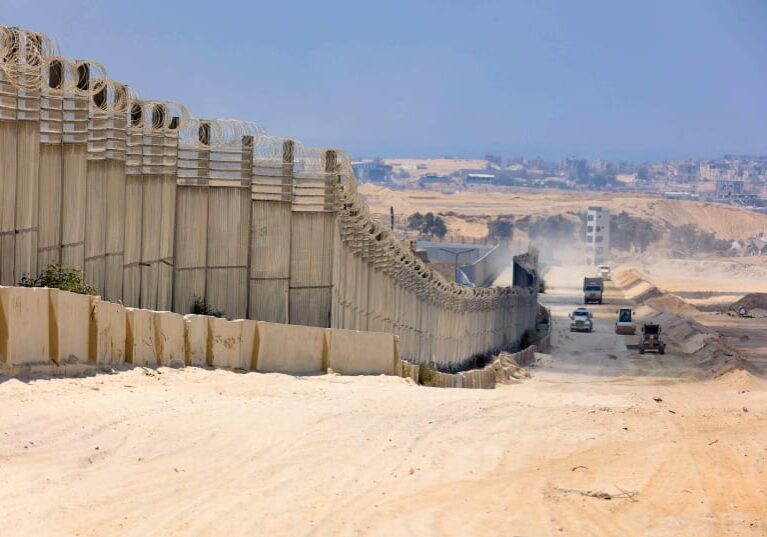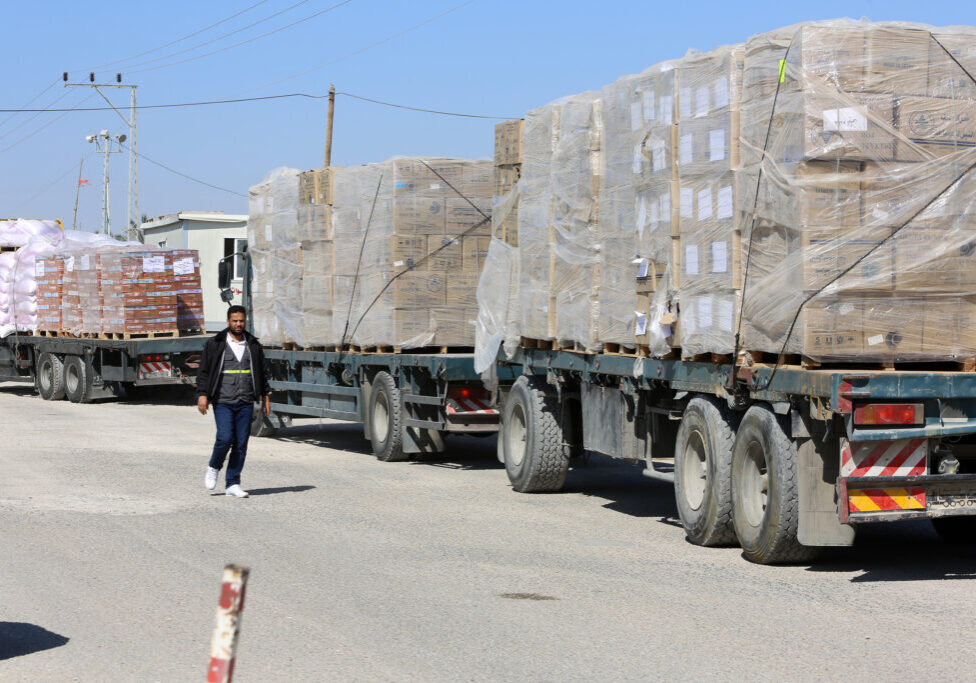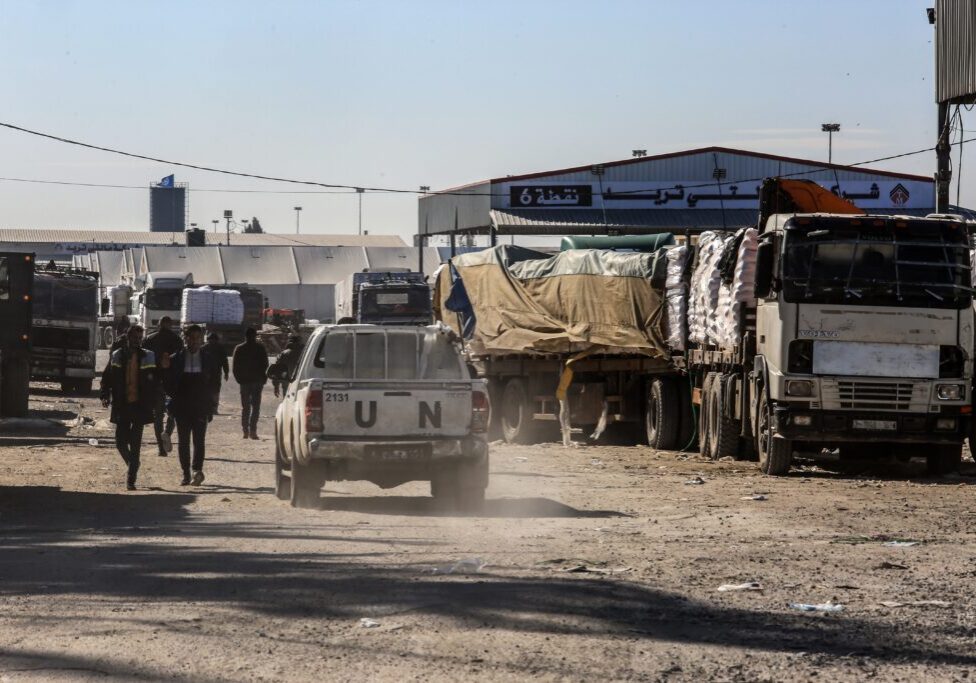Australia/Israel Review
A New Deal for Gaza?
Nov 1, 2017 | Amotz Asa-El
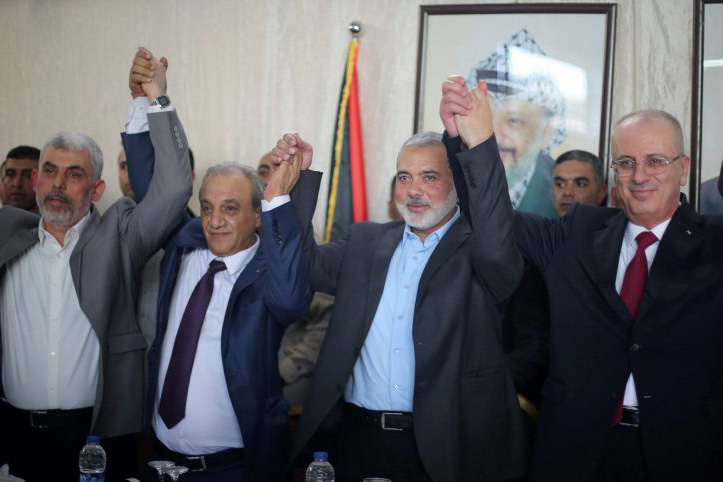
The Israeli perspective
Amotz Asa-El
Half a year after its arch-rival set out to choke it, Hamas appears to have effectively surrendered.
What began with Palestinian Authority (PA) President Mahmoud Abbas’ decision in April to cease paying for Gaza’s fuel shipments from Israel has now culminated in Hamas’ ostensible agreement to relinquish civilian rule of the coastal strip to the PA.
The Islamist group that ten years ago drove out the PA in a series of skirmishes which saw more than 100 people killed has since split the Palestinian public, and also the Palestinian cause. For a full decade the Palestinians spoke with two voices and went two separate ways, with Gaza’s Islamists preaching Israel’s violent extinction while the West Bank’s PA continued to recognise Israel, in line with the Oslo Accords it signed in 1993.
At the same time, Hamas largely neglected its population’s pressing needs for new jobs, hospitals, schools, roads, power stations, water plants, and sewage systems – investing instead in arms manufacturing, military enlistment and training, and digging terror tunnels into Israel. The result has been 42% unemployment, according to World Bank figures.
This economic failure was further aggravated by Hamas’ failed diplomatic investments.
Hamas’ first setback in this regard came in the wake of the civil war in Syria, where it took the side of the Sunni rebels, in line with its own Sunni identity. This led not only to the enmity of Syrian strongman Bashar Assad, but also to the loss of Hamas’ funding from his Iranian sponsors. Iran has since resumed payments to Hamas, but on a smaller scale.
Meanwhile, Hamas also allied itself with Egypt’s Muslim Brotherhood after Mohamed Morsi rose to the presidency in Cairo. Once Morsi was unseated by President Abdel Fatah al-Sisi in July 2013, Hamas lost Egypt’s support, and in fact has been suspected by Cairo of being an accomplice to the Islamic State terrorists that Egypt is fighting in Sinai, on Gaza’s doorstep.
Hamas’ diplomatic losses then spread to Turkey, where the government of Recep Erdogan, a Hamas ally, restored diplomatic ties with Israel in 2016 – implying that commercial deals for the Jewish state’s newfound gas were more urgent for Ankara than Gaza’s travails.
Finally, the funding Gaza was receiving from Qatar has also been dwindling in recent months, as the Sheikhdom faced a pan-Arab financial and diplomatic siege due to its suspected funding of assorted terror groups.
Hamas’ consequent financial shortfall became so acute that it couldn’t even activate Gaza’s lone power station or regularly pay its civilian employees. The result of all this is a political decision that might reboot, for better or worse, a situation that has long ranked high among Israel’s strategic headaches.
The thaw between Hamas and the PA culminated in Cairo on October 12, when the two’s representatives signed a reconciliation agreement, ten days after the entire PA cabinet arrived in Gaza and held a formal cabinet session there.
The deal says the PA would take over civilian rule of Gaza no later than December 1. Abbas is expected to visit his estranged territory before the end of the year, and the PA is supposed to take over control of the Strip’s border crossings.
“Today,” PA Prime Minister Rami Hamdallah told reporters in Gaza, “we stand before an important, historical moment as we begin to get over our wounds, put our differences aside and place the higher national interest above all else.”
While the future that Hamdallah portrayed has yet to unfold, one aspect of the past is now clear: Hamas has failed the test of government. Like Islamic State in its own situation between Syria and Iraq, and unlike Iran’s Islamists, Hamas squandered its opportunity to build a viable polity, and unlike Turkey’s Islamists, it displayed little motivation or ability to solve civilian problems.
Just how Hamas reached the decision to reconcile with the PA is unclear. Its leader in Gaza since February, Yahya Sinwar, played a key role in the move, and has publicly threatened anyone who might try to obstruct it. “I will break their spine,” he told high school students in Gaza, “whether they be from Hamas or from another organisation.”
Sinwar, who spent 22 years in an Israeli jail for multiple murders of Palestinians he claimed had collaborated with Israel, was released in 2011 as part of the deal in which Hamas released IDF Sgt. Gilad Shalit.
No one, on either side of Gaza’s border fence, has any illusions concerning Sinwar’s motivation. All seem to agree that unlike the PA, for which reconciliation is part of a strategic framework, for Hamas it is a tactical ploy.
For the PA, the grand aim behind this deal is to undo Gaza’s effective secession, and to resume government over its population of 1.8 million Palestinians. For Hamas, the aim remains to unseat and replace the Palestinian Authority, to preach Israel’s destruction, and to construct the military means to seek this goal through violence. For Hamas, Sinwar said on Oct. 19, the only issue is “when to erase Israel.”
Israeli analysts believe that Hamas’ aim is to retain its military infrastructure and development, and in fact to redouble it, once freed of current civilian responsibilities. The model for this would be Hezbollah, the Lebanese Shi’ite militia, which has military forces stronger than the Lebanese security forces and acts entirely independently of the government in Beirut – yet also has representatives in the Lebanese parliament and cabinet.
Such a model, of maximum authority and minimum responsibility, is obviously disagreeable to the PA. “I will not accept any attempt to create in Gaza Hezbollah’s Lebanese model,” Abbas told Egyptian TV station CBC, after conceding, “we all made mistakes, we all cursed each other.”
Abbas, according to Arab media, made three demands to Hamas: that it abolish its military wing and become a strictly political organisation; that Gaza be governed with no foreign involvement; and that all funding for local development be channeled through the PA.
The problem is that none of these issues has been resolved in the agreements between Hamas and the PA. The deal, for now, is simply about the restoration of the PA’s civilian rule, leaving discussion of the rest of the issues for later.
Despite Abbas’ bold demands, Israel’s intelligence agencies do not expect Hamas to voluntarily hand over its guns, missiles, rockets and tunnels. Moreover, to effectively take the reins of government, the PA will have to fire thousands of Hamas employees now working in civilian administration. Even such a benign attempt to assume control over civilian governance might spark violence, but that risk is mild compared with what might happen if the PA were to attempt to collect Hamas’ rifles and missiles.
Similarly, the prospects of Hamas’ men joining the PA’s secret police, which routinely cooperates with the Israeli military and secret services including against Hamas operatives, are equally remote.
Indeed, the informal expectation in Jerusalem is that the deal will not last. Formal Jerusalem, however, has been relatively quiet in the face of the reconciliation, saying little other than the obvious, which is that to be workable the deal must include disarming Hamas, recognising Israel, and accepting the PA’s international commitments, namely the Oslo Accords, which Hamas repudiates. In addition, Israel demands the freeing of two Israeli civilian captives and the return of two Israeli soldiers’ bodies that are being held in Gaza.
Israel is keeping a low profile, firstly, because it deeply doubts the deal will endure, but also because it secretly hopes that, whatever its signatories’ plans, it will generate a civilian dynamic that will reduce motivation in Gaza for another bout of violence with the IDF.
Beyond all these calculations lurks the extensive Egyptian involvement in obtaining the new deal. This role is viewed positively in Jerusalem, not only because the current Egyptian Government is working closely with Israel on various fronts, but also because Egypt does have genuine leverage in Gaza.
Egypt’s President Sisi, now in power for more than four years, has been too busy trying to reignite his country’s economy and fighting Islamic State in Sinai to play the role of leader of the Arab world, as most past Egyptian presidents routinely did. This absence has been particularly glaring in the Syrian crisis.
Initially, Sisi also kept his distance from the Palestinian situation, though he did say at various junctures that an Israeli-Palestinian deal was urgent and Egypt was ready to help make it happen.
Now something has changed. Evidently, Egypt’s concern is the ongoing guerrilla war its military faces in Sinai. Egypt wants Gaza severed from that context, and one way to promote this aim is to contain or coopt its Islamists while giving the local population a better life. That is why Egypt worked hard to broker the Hamas-Fatah deal, which its diplomats feel can develop and endure.
Like the US, which also said the deal must include recognition of Israel, acceptance of the PA’s commitments, and Hamas’ disarming, Israel is giving the Egyptian effort a chance, not only out of courtesy for the covert ally to its south, but also out of sincere hope that it will impose the PA on Hamas.
The question is what happens in the likely event that Hamas fails to change its spots, and the PA fails to silence the rhetoric of the Hamas preachers and the guns of their henchmen. In such a case, Hamas might be tempted to further provoke Egypt, and Egypt might even feel compelled to re-enter the Strip that it once ruled – from 1948 to 1967.
There is, however, a happier scenario.
The deal just might enable an ambitious reconstruction drive in Gaza. If Hamas lets the PA go in this direction, Gaza will find everyone – from the US and Europe to China and the World Bank – eager to invest in the relatively easy tasks of building factories, houses, roads, power plants and resorts that transform Gaza from a place of Islamist incitement and violence, into a metropolis of gainfully employed breadwinners.
Tags: Egypt

